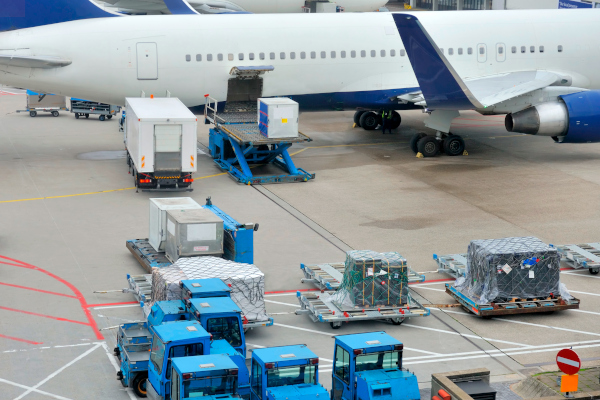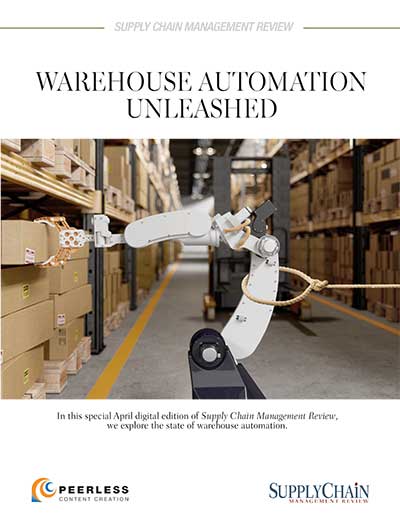Recent studies suggest that artificial intelligence (AI) will likely create jobs and not as the 2013 Oxford University study suggested destroying as much as 47% of all jobs in the United States within 10 years.
So why the change? How could the use of AI be a catalyst for job creation? Regardless of which side of the argument you are on, the AI issue is creating profound questions which will take time to be answered and positions resolved.
Why then you might ask, am I writing this piece now? The answer is simple. I contend that the worldwide air cargo logistics industry must start preparing now for the adoption of AI and not wait until all the issues are resolved. Furthermore, I also believe that if the industry is prepared there is a higher probability of reaping more benefits. The Economist posits that a reduction in the cost of production through application of AI could increase demand for more goods and services. The increased demand will mean more cargo traffic and more employment in all the sectors which comprise the worldwide air cargo logistics industry. AI will enhance work. AI will give managers and staff more usable information faster to better plan allocation of resources, reduce time-consuming, low-value tasks such as data entry, and consequently empower everyone to critically examine and proactively change what they do.
AI drives GDP growth
The new research from a variety of sources including Goldman Sachs, Open Philanthropy, Andressen Horowitz, and OpenAI, all point to potential major growth in national and world gross domestic product (GDP). As an example, Goldman Sachs forecasts a $7 trillion increase in annual global GDP over a decade due to the adoption of AI. Not everyone believes that AI will be adopted so quickly. Research conducted by the Massachusetts Institute of Technology suggest that the adoption of AI and its contribution to the world’s GDP could be between 30 and 50 years away. An example of a long gestation period is automated telephone switching. The technology was first created in 1892. It was not fully implemented in the United States until the 1980s; 90 years later!
But regardless of how long it takes, OpenAI suggests that “large language model (LLM) technology, a segment of artificial intelligence, could affect 10% of the work tasks of 80% of the US workforce.”
As I stated in the previous blog, AI holds promise when tied to airport cargo community systems. The combination will provide supply chain managers and partners with the information and associated tools to identify and minimize the impact of disruptions. That knowledge will contribute to the resilience and sustainability of supply chains.
Embracing change
It is estimated that OpenAI spent $100 million to create and train GPT-4, one of its chatbots. Technology has progressed so quickly that some experts suggest that AI products are no longer unique, they employ the same models, and a single person with sufficient computing power can create powerful artificial intelligence models. The challenge is then training the model. That is where large language model (LLM) technology comes into play. An AI model is only as good as the data and information it consumes.
This new environment creates both challenges and opportunities for all sectors of the worldwide air cargo industry and the broader logistics industry.
From my perspective there are two main challenges. One, is to overcome a reluctance and accept that AI is coming and adjust and prepare accordingly. The legacy systems, analog and digital, must change in many ways including necessary skill sets of its managers and staff, how information and data is generated, used and shared, and how companies work across supply chains through partnerships and not transaction-based vendorships.
The second challenge is how to collect the necessary information and data to train the models. The current paucity of information and data in the air cargo industry is well known. While some companies have reams of data and use it to their advantage, others are in the data and information wilderness. Platforms such as the airport cargo community systems, which provide immediate volumes of information and data for operational use, can also be the source of anonymized information and data for the LLM models.
Skill-based jobs remain safe
The array of opportunities is boundless. Most researchers, apart from those at Oxford, believe that jobs which are based on skills and tasks that cannot be readily automated are not in jeopardy of being significantly affected by the application of AI.
Employees who have permission to change how they perform their assigned tasks are more vested in their work and are generally happier and more loyal. While giving up “power” can be threatening to some managers, those that embrace this attitude see many benefits. A classic example is the experience of Continental Airlines under Gordon Bethune. Frontline employees were empowered to immediately address passenger issues without having to call on managers. They figured out better ways to perform their assignments and contributed to the improved reliability, reputation, and market position of the airline.
Empowerment must be combined with continuous learning at all organizational levels. Preparing for AI means a move away from traditional training to learning. By that I mean, managers and staff must understand why they are performing a task, understand its elements, and using that knowledge, be open to changes that are in concert with AI models as they develop. You can’t achieve such changes if you just train someone how to perform a task.
The steps toward this new environment are clear. One, start reading about artificial intelligence models across all industries. Understand how it is being used and then look at your own business. Two, start preparing your managers and staff for artificial intelligent models based on research in step one. Three, seek out innovative educational tools and support for everyone in your organization. Then start the educational process. Four, examine the data you have and more importantly have but don’t use. That data can be used to identify how to perform better, with more resilience and sustainability, and eventually used to feed the AI model which is designed for your business.
Yes, change is scary … we all like stability. But the worldwide air cargo industry has always been changing, so embrace the coming change and prepare for it now.
About the author:
Charles H.W. Edwards, B.A., M.Sc., MBA, has over 50 years in the transportation, distribution, and logistics industry. Edwards is a vice president of SASI World and a professor of the practice at the University of North Carolina at Chapel Hill in the Department of City and Regional Planning. He is a Scholar Fellow of Sigma Chi Mu Tau (Supply Chain) honor society. He began his career as a truck driver in Toronto. Since then, Edwards has worked in international freight forwarding in Canada and the UAE, numerous sectors of the airline industry, aviation design and manufacturing in Germany and the United States, ocean freight, rail management, economic development, and logistics education. Edwards can be contacted at [email protected].
SC
MR


Latest Supply Chain News
- Tech investments bring revenue increases, survey finds
- Survey reveals strategies for addressing supply chain, logistics labor shortages
- Israel, Ukraine aid package to increase pressure on aerospace and defense supply chains
- How CPG brands can deliver on supplier diversity promises
- How S&OP provides the answer to in-demand products
- More News
Latest Resources

 Explore
Explore
Topics
Business Management News
- Survey reveals strategies for addressing supply chain, logistics labor shortages
- How CPG brands can deliver on supplier diversity promises
- How S&OP provides the answer to in-demand products
- AI, virtual reality is bringing experiential learning into the modern age
- Tips for CIOs to overcome technology talent acquisition troubles
- There is still work to do to achieve supply chain stability
- More Business Management
Latest Business Management Resources

Subscribe

Supply Chain Management Review delivers the best industry content.

Editors’ Picks





